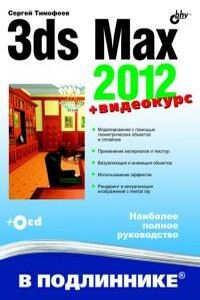Rust by Example | страница 10
>println!("0011 AND 0101 is {:04b}", 0b0011u32 & 0b0101);
>println!("0011 OR 0101 is {:04b}", 0b0011u32 | 0b0101);
>println!("0011 XOR 0101 is {:04b}", 0b0011u32 ^ 0b0101);
>println!("1 << 5 is {}", 1u32 << 5);
>println!("0x80 >> 2 is 0x{:x}", 0x80u32 >> 2);
>// Use underscores to improve readability!
>println!("One million is written as {}", 1_000_000u32);
>}
>הההההההההההההההההההההההההההההההההההההההההההההההההההההההההההההההההההההההההההההההההההההההההההההההההההההההההההההההההההההההההההההההההההההההההההההההההההההההההההההההההההההההההההההההההההההההההההההההההההההההההההההההההההההההההההההההההההההההההההההההההההההההההההההההה
>XXXXXXXXXXXXXXXXXXXXXXXXXXXXXXXXXXXXXXXXXXXXXXXXXXXXXXXXXXXXXXXXXXXXXXXXXXXXXXXXXXXXXXXXXXXXXXXXXXXXXXXXXXXXXXXXXXXXXXXXXXXXXXXXXXXXXXXXXXXXXXXXXXXXXXXXXXXXXXXXXXXXXXXXXXXXXXXXXXXXXXXXXXXXXXXXXXXXXXXXXXXXXXXXXXXXXXXXXXXXXXXXXXXXXXXXXXXXXXXXXXXXXXXXXXXXXXXX
A tuple is a collection of values of different types. Tuples are constructed using parentheses (), and each tuple itself is a value with type signature (T1, T2, ...), where T1, T2 are the types of its members. Functions can use tuples to return multiple values, as tuples can hold any number of values.
>// Tuples can be used as function arguments and as return values
>fn reverse(pair: (i32, bool)) -> (bool, i32) {
>// `let` can be used to bind the members of a tuple to variables
>let (integer, boolean) = pair;
>(boolean, integer)
>}
>// The following struct is for the activity.
>#[derive(Debug)]
>struct Matrix(f32, f32, f32, f32);
>fn main() {
>// A tuple with a bunch of different types
>let long_tuple = (1u8, 2u16, 3u32, 4u64,
>-1i8, -2i16, -3i32, -4i64,
>0.1f32, 0.2f64,
>'a', true);
>// Values can be extracted from the tuple using tuple indexing
>println!("long tuple first value: {}", long_tuple.0);
>println!("long tuple second value: {}", long_tuple.1);
>// Tuples can be tuple members
>let tuple_of_tuples = ((1u8, 2u16, 2u32), (4u64, -1i8), -2i16);
>// Tuples are printable
>println!("tuple of tuples: {:?}", tuple_of_tuples);
>// But long Tuples cannot be printed
>// let too_long_tuple = (1, 2, 3, 4, 5, 6, 7, 8, 9, 10, 11, 12, 13);
>// println!("too long tuple: {:?}", too_long_tuple);
>// TODO ^ Uncomment the above 2 lines to see the compiler error
>let pair = (1, true);
>println!("pair is {:?}", pair);
>println!("the reversed pair is {:?}", reverse(pair));
>// To create one element tuples, the comma is required to tell them apart
>// from a literal surrounded by parentheses


